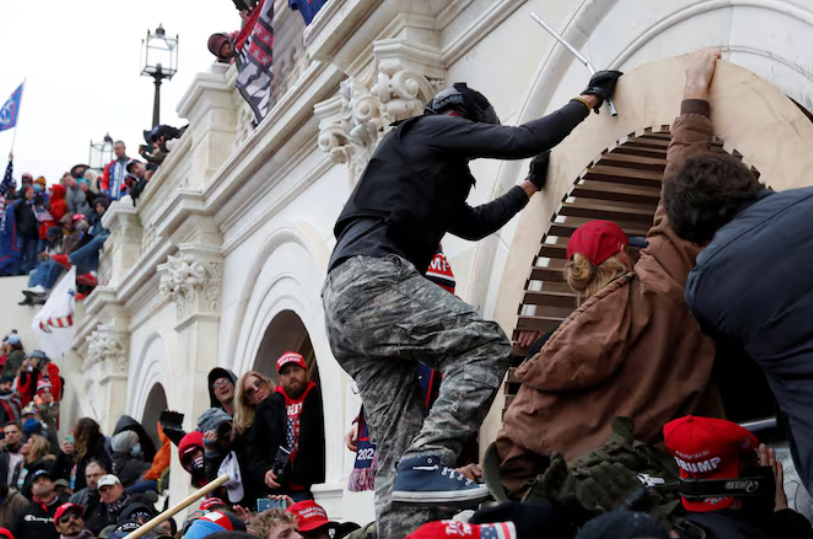A U.S. prosecutor announced on Wednesday that the Justice Department would not pursue the revival of an obstruction charge against former police officer Joseph Fischer, who was charged in connection with the U.S. Capitol riot. Fischer successfully persuaded the U.S. Supreme Court to raise the legal standard for this offense, leading to broader implications for more than 250 prosecutions related to the January 6, 2021, Capitol attack, where supporters of Donald Trump breached the building to stop lawmakers from certifying his 2020 election loss.
In June, the Supreme Court, in a 6-3 ruling, determined that prosecutors must prove that defendants charged with obstructing an official proceeding—such as the congressional certification of the election—either “impaired the availability or integrity” of documents or other records, or attempted to do so. This decision directly impacted Fischer’s case and other related prosecutions.
Prosecutor Alexis Loeb informed a federal judge that the government intends to proceed to trial on the six remaining charges against Fischer. U.S. District Judge Carl Nichols tentatively set the trial for February 2025. Fischer, a former police officer in North Cornwall, Pennsylvania, has pleaded not guilty to the remaining charges, including assaulting police officers.
Judge Nichols previously dismissed the obstruction charge against Fischer, which led to the appeal that ultimately reached the Supreme Court. The Supreme Court’s decision in Fischer’s case has sparked new legal challenges regarding how to handle cases previously charged under a broader interpretation of the obstruction law, which the court has now rejected. In response, federal prosecutors have dropped obstruction charges against over 60 January 6 defendants. However, in at least three cases, prosecutors believe they can meet the more stringent standard set by the Supreme Court.
Former President Trump faces two obstruction-related charges in a case accusing him of attempting to overturn the 2020 election. He is expected to launch his own legal challenge based on the Fischer decision.
The three cases where the U.S. government seeks to maintain obstruction charges involve defendants who allegedly made statements about the Electoral College vote or occupied the U.S. Senate chamber, with some accused of rifling through papers on senators’ desks. Prosecutors argued in an August 21 court filing that husband and wife Donald and Shawndale Chilcoat were aware that the congressional proceeding involved records, “specifically, the electoral votes that Congress was to consider.” A lawyer for the couple declined to comment.
Prosecutors also argued that Christopher Carnell and David Bowman, who were previously found guilty of obstruction, should be retried. They pointed to actions on the Senate floor, where Bowman allegedly photographed a letter signed by Senator Mitt Romney. Defense lawyers countered that the defendants did not tamper with any papers, which they asserted were not evidence in the congressional proceeding.
Prosecutors have stated that they are conducting a “case-by-case” analysis of obstruction cases and are considering whether some defendants could still face appropriate sentences based on other crimes. A spokesperson for the U.S. attorney’s office in Washington, which leads the January 6 prosecutions, declined to comment. Defense attorney Nick Smith criticized the government’s persistence in pursuing these specific charges despite the Supreme Court’s decision, calling it “remarkable.”
Out of nearly 1,500 Capitol riot cases, 259 defendants were charged with obstructing the congressional proceeding at the time of the Supreme Court ruling. Of those, about 133 have already been sentenced, with the impact of the Supreme Court’s decision on these sentences yet to be determined. The remaining defendants are awaiting trial or sentencing.

